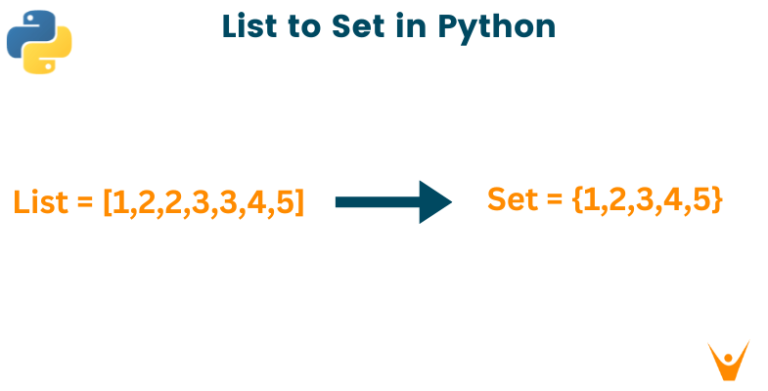Angular vs AngularJS: Choosing the Right Framework for Your Web Development Needs
In the world of web development, choosing the right framework is crucial to building efficient and scalable applications. Two popular frameworks that often come into consideration are Angular vs AngularJS. While both frameworks are developed by Google, they have significant differences in terms of architecture, features, and community support. In this article, we will explore the key differences between Angular and AngularJS to help you make an informed decision for your next web development project.
1. What is Angular vs AngularJS?

1.1 AngularJS (Angular 1.x):
AngularJS, often referred to as Angular 1.x, is a JavaScript-based framework that was first released in 2010. It follows the Model-View-Controller (MVC) architectural pattern and focuses on enhancing HTML functionality using directives. AngularJS introduced the concept of two-way data binding, where changes in the model or view are automatically reflected in the other. It became widely popular due to its simplicity and ability to build dynamic and interactive web applications. However, as web development evolved, certain limitations and performance issues emerged, leading to the development of Angular.
1.2 Angular (Angular 2+)
Angular, also known as Angular 2+ or just Angular, is a complete rewrite of AngularJS and was first released in 2016. It is built using TypeScript, a superset of JavaScript that adds static typing and other advanced features. Angular follows a component-based architecture, where applications are built by composing reusable components and services. It adopts a one-way data flow approach, making it more predictable and performant. Angular also introduced several improvements such as a faster rendering engine, ahead-of-time (AOT) compilation, and better support for reactive programming with RxJS. It offers a more scalable and enterprise-ready solution compared to AngularJS.
2. Factors of Comparison: Angular vs AngularJS

2.1 Architecture
AngularJS, also known as Angular 1.x, is a JavaScript-based framework that follows the Model-View-Controller (MVC) architecture. It utilizes two-way data binding, where any changes in the model or view are automatically reflected in the other. AngularJS relies heavily on directives to extend HTML’s functionality and build dynamic web applications.
On the other hand, Angular, also known as Angular 2+ or just Angular, is a complete rewrite of AngularJS and follows the component-based architecture. It uses TypeScript, a superset of JavaScript, and adopts a one-way data flow approach. Angular relies on components and services to build modular and scalable applications, making it suitable for large-scale enterprise projects.
2.2 Performance and Speed
AngularJS applications often face performance issues due to two-way data binding and the digest cycle. As the application grows in complexity, the digest cycle takes longer to process and can lead to sluggishness. However, with careful optimization and performance tuning, it is still possible to build performant AngularJS applications.
Angular, on the other hand, has a faster rendering engine and supports ahead-of-time (AOT) compilation. This means that Angular applications are generally faster and provide better performance out of the box. The use of reactive programming with RxJS in Angular also enhances performance and makes it easier to handle asynchronous operations.
2.3 Language and Learning Curve
AngularJS uses JavaScript as its programming language, making it accessible to developers familiar with the language. The framework relies on many custom directives and functions, which can sometimes lead to a steep learning curve, especially for developers transitioning from traditional jQuery-based development.
Angular, however, uses TypeScript, which adds static typing and brings several modern features to JavaScript. TypeScript helps catch potential errors during development and provides better tooling support. While TypeScript might require some learning initially, its benefits in terms of maintainability and code quality make it worth considering
2.4 Community and Ecosystem
AngularJS, being the older framework, has a large community of developers and a vast ecosystem of plugins and libraries. However, with the release of Angular, the focus of the community has shifted towards the newer version. While AngularJS still receives some updates and bug fixes, the momentum is clearly with Angular.
Angular has a strong and active community, backed by Google, which ensures continuous development and support. The ecosystem of Angular is also vibrant, with numerous third-party libraries, tools, and resources available to help developers build robust applications.
2.5 Longevity and Future-proofing
Considering the long-term viability of a framework is essential for any web development project. AngularJS, despite being widely used, is considered a legacy framework, and its future is uncertain. Many organizations have migrated or are planning to migrate their AngularJS applications to Angular due to the latter’s improved features and community support.
Angular, being the modern successor to AngularJS, is actively maintained and will likely have a longer lifespan. Its modular architecture, strong community, and backing from Google ensure a promising future and continuous updates.
2.6 Mobile support
AngularJS:
AngularJS was initially developed before the rise of mobile devices and the widespread adoption of responsive web design. As a result, it does not have built-in mobile-specific features or optimizations. However, AngularJS applications can still be made responsive and mobile-friendly by applying appropriate CSS techniques and using responsive design principles. Developers can use CSS media queries and other responsive design practices to ensure that the application layout adapts well to different screen sizes.
Angular:
On the other hand, Angular has better support for mobile development out of the box. Angular applications can be easily made responsive and optimized for mobile devices using Angular Material, a UI component library specifically designed for Angular. Besides, Angular Material provides a collection of pre-built UI components and layouts that are optimized for mobile experiences. These components adhere to Material Design principles and offer a consistent and visually appealing look and feel across different devices.
In summary, while both AngularJS vs Angular can be used to build mobile-friendly applications, Angular offers better out-of-the-box support for mobile development. With features like Angular Material and PWA support, Angular simplifies the process of creating responsive, visually appealing, and mobile-optimized web applications.
3. Why Angular?

3.1 Pros of Angular
The following list outlines the reasons why you should consider using Angular for your web development projects:
- TypeScript Support: Angular fully embraces TypeScript, enhancing developer productivity and code quality through static typing and code modularity.
- Mobile Support: Angular provides a mobile support framework, making it easier to create responsive and mobile-friendly web applications.
- Enhanced Dependency System and Modularity: Angular simplifies managing dependencies between components, promoting modularity and scalability.
- Wide Range of Feature Support: Angular offers a variety of features such as Dart, type-checking syntax, Angular CLI, and support for ES5, iterators, lambda operators, and ES6, enabling developers to write clean and efficient code.
- Semantic Versioning: Angular follows a predictable versioning scheme, ensuring updates are delivered consistently and allowing developers to plan migrations effectively.
- Simple Routing: Angular provides an intuitive routing mechanism for easy navigation between views, simplifying the creation of single-page applications.
In conclusion, Angular’s TypeScript support, mobile compatibility, enhanced modularity, rich feature set, semantic versioning, and simple routing make it an excellent choice for building scalable and maintainable web applications.
3.2 Cons of Angular
Setting up an Angular 2+ project is more complex compared to AngularJS. If your goal is to create simple web applications, Angular may not be the ideal choice. Angular poses a challenge when it comes to cross-browser compatibility, as it may not support all the features of modern browsers. However, you can mitigate this issue by loading polyfill scripts specifically designed to support the browsers you need to target. These scripts can provide the missing functionality and ensure your application works smoothly across a wide range of browsers.
4. Why AngularJS?

4.1 Pros of AngularJS
AngularJS offers advantages for web development:
- MVC Data Binding: AngularJS enables seamless data binding between the model and the view, improving dynamic application performance.
- Change Detection and Unit Testing: Robust change detection ensures efficient tracking of data changes and facilitates effective unit testing.
- Declarative Template Language: AngularJS uses HTML as a declarative template language, simplifying development by focusing on structure and logic.
- Independent Framework: AngularJS is a self-contained open-source framework, that reduces dependencies and streamlines development.
- Cross-Platform Compatibility: AngularJS supports running applications on various platforms, including iOS and Android devices.
In summary, AngularJS provides benefits such as MVC data binding, change detection, declarative templates, an independent framework, and cross-platform compatibility, empowering developers to create efficient applications across devices and platforms.
4.2 Cons of AngularJS
AngularJS has a few drawbacks to consider
- Complexity and multiple approaches can make it complicated.
- Scaling implementation can be challenging.
- Disabling JavaScript leads to a basic page and limited functionality.
- Performance issues can arise with a high number of concurrent apps.
These limitations have led many developers to migrate to newer versions of Angular or alternative frameworks
Conclusion
Based on the information provided in the article and the comparison above, it is evident that AngularJS vs Angular have distinct differences. AngularJS is a powerful framework that facilitates the development of scalable client-side web applications with reduced development time and effort.
Thanks to its valuable concepts and functionalities, AngularJS enables applications to perform efficiently and remain stable. On the other hand, Angular offers numerous advantages for front-end developers, which is why many renowned companies choose it for their projects.
We- ONEXT DIGITAL are offering Angular development services for creating dynamic desktop, mobile, and web applications. If you have a web idea in mind, don’t hesitate to get in touch with us today.
Read more
React Native Calender: Easy Steps To Create A React Native Calendar Component




